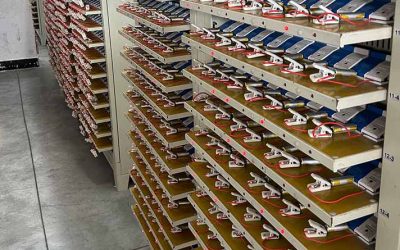Choosing between lithium-ion (Li-ion) and lithium polymer (LiPo) batteries for a power bank depends on several factors, including performance requirements, size constraints, and specific application needs. Here’s a comparison to help you decide:
- Energy Density and Capacity:
- Li-ion: Generally has slightly higher energy density compared to LiPo batteries. This means it can store more energy in the same volume or weight.
- LiPo: Offers flexibility in shape and size due to its pouch-like packaging, which can sometimes compensate for slightly lower energy density.
- Size and Form Factor:
- Li-ion: Typically comes in a more standardized, rigid form factor due to its metal or hard plastic casing. This might limit design flexibility in compact devices.
- LiPo: Can be made in various shapes and sizes, including very thin and flexible designs. This makes it easier to integrate into smaller and more customized form factors like slim power banks.
- Performance under Load:
- Li-ion: Generally performs well under high discharge rates, making it suitable for applications requiring consistent power output.
- LiPo: Can handle higher discharge rates compared to traditional cylindrical Li-ion batteries, which is beneficial for devices that require bursts of power, such as high-performance electronics or devices with motors.
- Safety and Durability:
- Both types of batteries require proper handling to ensure safety. Li-ion batteries have a longer history of use and established safety records, but LiPo batteries have also become increasingly safe with advancements in manufacturing and materials.
- Cost and Availability:
- Li-ion batteries are more established in the market and often more readily available in a wide range of capacities and configurations.
- LiPo batteries may be slightly more expensive due to their flexibility and specialized manufacturing processes.
Choosing the Best Option:
- For Compactness and Customization: LiPo batteries are often preferred due to their flexibility in shape and size, making them ideal for slim and custom-designed power banks.
- For Maximum Energy Storage: Li-ion batteries may be better suited if maximizing energy density in a given volume or weight is crucial.
- For High Discharge Requirements: LiPo batteries might be preferred for applications needing high burst currents or quick recharges.
In summary, both Li-ion and LiPo batteries have their strengths, and the choice between them for a power bank depends on specific requirements such as size, energy density, discharge characteristics, and cost considerations.

